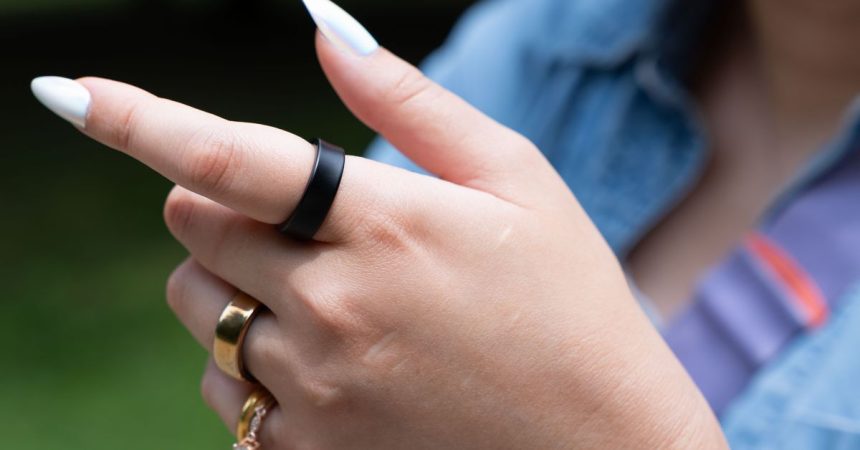The Samsung Galaxy Ring, a health-tracking wearable, has recently become more accessible thanks to a significant discount. Initially priced at $400, a $120 price drop brings the cost down to $279.99 at Amazon, making it a more compelling alternative to competitors like the Oura Ring 4. This discounted price applies to all three color options – black, gold, and silver – and spans a wide range of sizes from 5 to 15. While knowing your ring size may allow for a direct purchase, Samsung recommends using their sizing kit for a perfect fit. Although temporarily out of stock at Amazon, the $10 kit can be found at Best Buy, where the purchase price is offset by a $10 gift card. Best Buy also offers the $120 discount on the Galaxy Ring itself for My Best Buy Plus and Total members.
One of the Galaxy Ring’s key advantages over the Oura Ring 4, despite being initially more expensive, is its lack of a required subscription. Functionality is optimized for Galaxy smartphone users, although basic activity and sleep tracking features are available regardless of phone type. The IP68 water-resistant ring boasts standard health metrics tracking, including blood oxygen level, skin temperature, heart rate, steps, and workouts. The real power of the Galaxy Ring, however, lies in its integration with Galaxy AI. This synergy provides in-depth sleep analysis, workout assessments, and an “Energy Score” designed to quantify fatigue levels.
While these AI-driven insights offer valuable data, it’s worth noting that the accompanying advice isn’t always optimally helpful. Furthermore, a Galaxy Watch provides greater accuracy for these measurements. Interestingly, using the ring and watch simultaneously can extend the ring’s battery life by 30%, boosting its typical six to seven-hour runtime. This improvement is attributed to the Galaxy ecosystem prioritizing the watch’s readings whenever possible. Other features, like pinch gestures for controlling your smartphone and activating the ring’s lights via Samsung Find, also require a Galaxy smartphone.
The Galaxy Ring’s value proposition hinges significantly on its integration with the Samsung Galaxy ecosystem. While the ring offers basic functionality with non-Samsung phones, the advanced features and AI-driven insights are exclusive to Galaxy smartphone users. This targeted approach creates a powerful incentive for Samsung users to invest in the ring, strengthening the brand’s ecosystem. For those outside the Samsung ecosystem, the ring’s functionality, while adequate, may not justify the price, especially considering the availability of other, potentially more suitable, alternatives.
The recent price reduction makes the Galaxy Ring a more attractive option, particularly for those invested in the Samsung Galaxy ecosystem. The lack of a subscription fee, coupled with its health tracking capabilities and integration with Galaxy AI, presents a compelling package. However, prospective buyers should be aware of the ring’s dependence on a Galaxy smartphone for its full potential. Users of other phone brands might find the limited functionality and shorter battery life less appealing, especially considering the wealth of alternative health tracking wearables on the market.
In conclusion, the Samsung Galaxy Ring, with its recent price drop, offers a competitive entry into the health-tracking wearable market. Its integration with the Galaxy ecosystem, including AI-driven insights and synergy with Galaxy Watches, represents a strong draw for Samsung users. However, its limitations outside the Samsung ecosystem and dependence on a Galaxy phone for advanced features should be carefully considered. The ring’s core strengths lie in its seamless integration within the Samsung world, offering a compelling blend of health tracking, data analysis, and convenient phone interaction for loyal Galaxy users. Whether the Galaxy Ring is the right choice for you ultimately depends on your smartphone preference and your priorities in a health-tracking wearable.



